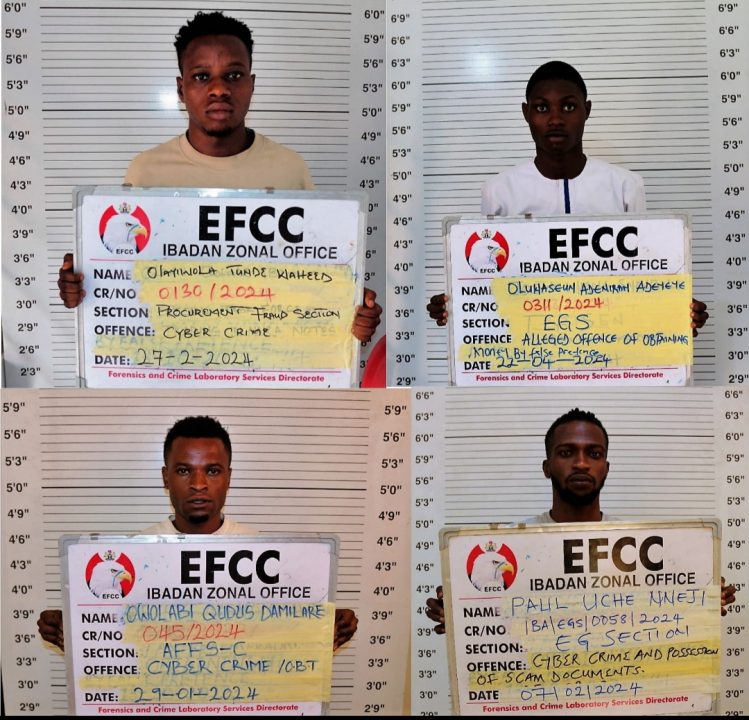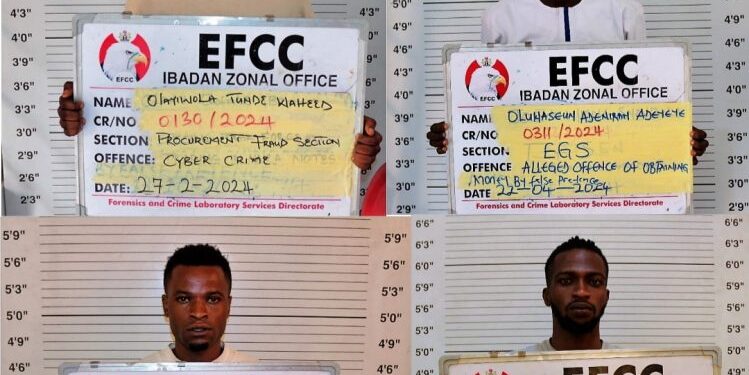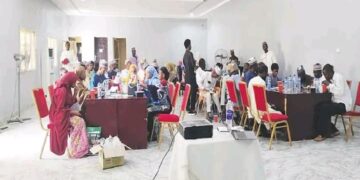On September 4, 2024, the Ibadan Zonal Command of the Economic and Financial Crimes Commission (EFCC) reported the apprehension of 39 individuals suspected of engaging in internet fraud in Oyo State. This operation, which concluded with their prosecution, underscores the ongoing battle against cybercrime in Nigeria.
According to EFCC spokesperson Dele Oyewale, the arrests were made during a coordinated effort targeting fraudulent activities that have become prevalent in the region. The suspects were brought before the Oyo State High Court in Ibadan, where they faced individual charges related to impersonation, cheating, possession of fraudulent documents, and obtaining property through false pretenses.
The list of convicted individuals includes notable names such as Fasanya Gbolahan, Nkiri Destiny, and Olawale Abideen, among others. Each defendant was charged with a one-count offense, allowing the court to address their cases in a structured manner.
One particularly striking case involved Austine Ayomide, who was accused of impersonating a white woman named Linda Mary from the United States through social media. The court found Ayomide guilty of fraudulently misrepresenting himself to gain an advantage, leading to a charge under the Criminal Code Law of Oyo State.
Upon pleading guilty to the charges, the individuals were subjected to varying sentences based on the severity of their offenses. The presiding judges—Justices O.S. Adeyemi, Bayo Taiwo, and Ladiran Akintola—reviewed the evidence presented by the prosecution and determined appropriate penalties.
Justice Adeyemi imposed a one-year community service sentence or a fine of N200,000 on Ayomide. Other defendants received similar sentences, with some opting for community service as a form of restitution. For instance, Tunde was sentenced to one month in jail or a N250,000 fine, while several others were given six months of community service along with a monetary penalty of N50,000 each.
Justice Taiwo’s rulings included three months of imprisonment for Taoreed Abidoun and four months for Mujeeb. He also mandated community service and fines for others, demonstrating a balanced approach to punishment that encourages rehabilitation over incarceration for lesser offenses.
Justice Akintola’s sentencing included a mix of fines and community service, with some convicts required to forfeit valuable assets, including vehicles linked to their fraudulent activities. For instance, Damilola lost a Nissan Micra, while Emmanuel forfeited a Lexus IS 250. These forfeitures are part of the court’s effort to deter future criminal activities by stripping offenders of the tools and gains derived from their crimes.
The court proceedings highlighted the EFCC’s commitment to tackling internet fraud, a growing issue that poses significant risks to individuals and the economy at large. The successful prosecution of these suspects is a testament to the ongoing efforts of law enforcement agencies to combat cybercrime, ensuring that those who exploit others for financial gain face justice.
In conclusion, the sentencing of these 39 individuals marks a significant step in the fight against internet fraud in Nigeria. The EFCC continues to encourage vigilance and deterrence against such activities, emphasizing the importance of maintaining integrity within the digital space.









